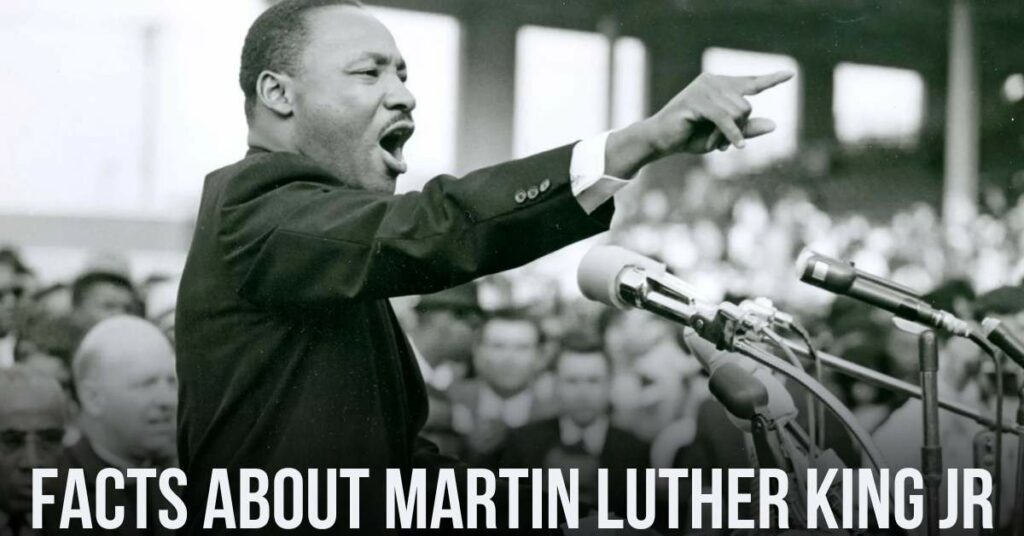Dr. Martin Luther King Jr., an iconic Baptist minister and social activist, dedicated his life to the nonviolent struggle for justice in the United States. His leadership played a pivotal role in dismantling entrenched segregation and fostering the creation of the Civil Rights Act of 1964. In this article, we delve into lesser-known facts about the life and enduring legacy of this civil rights icon.
- A Name Transformed: Martin Luther King Jr. was born Michael King Jr. on January 15, 1929. In 1934, his father, a pastor at Atlanta’s Ebenezer Baptist Church, was deeply influenced by the Protestant Reformation leader Martin Luther during a trip to Germany. Consequently, both father and son changed their names to Martin Luther King.
- An Academic Prodigy: King’s intellect shone brightly from a young age. He entered college at just 15, skipping grades nine and twelve. In 1944, he enrolled at Morehouse College, where his family had strong ties. Initially unsure about following in his family’s ministerial footsteps, King was persuaded by Morehouse president Benjamin E. Mays, a renowned theologian, to embrace the calling. He earned his degree in sociology and was ordained before graduating.
- Pursuit of Knowledge: After obtaining a divinity degree from Pennsylvania’s Crozer Theological Seminary, King pursued higher education at Boston University, where he earned his Ph.D. in 1955. His doctoral dissertation, titled “A Comparison of the Conceptions of God in the Thinking of Paul Tillich and Henry Nelson Wieman,” reflected his deep academic commitment.
- An Earlier Address at the Lincoln Memorial: While Dr. King is famously known for his “I Have a Dream” speech during the March on Washington in 1963, he had already spoken at the Lincoln Memorial six years earlier. In 1957, during the Prayer Pilgrimage for Freedom, King passionately addressed voting rights before a significant crowd. His call for equal voting rights left a significant mark on the civil rights movement.
- A Persistent Advocate: King’s commitment to justice led to his arrest a staggering 29 times. These arrests resulted from acts of civil disobedience and often involved trumped-up charges, such as a 1956 incident in Montgomery, Alabama, where he was arrested for driving slightly above the speed limit.
- A Narrow Escape: In 1958, a decade before his tragic assassination, King narrowly survived an assassination attempt in Harlem. Izola Ware Curry approached him while he was signing books and stabbed him with a seven-inch letter opener. The blade came perilously close to his aorta, necessitating delicate surgery. King’s forgiving response demonstrated his unwavering commitment to nonviolence.
- A Profound Farewell: In his final public speech on April 3, 1968, in Memphis, King expressed his awareness of his own mortality. He spoke of having seen the “Promised Land” and his contentment, stating, “I may not get there with you, but I want you to know tonight, that we, as a people, will get to the Promised Land.” Tragically, he was assassinated the following day.
- Controversy Surrounding His Assassination: While James Earl Ray pleaded guilty to King’s assassination, doubts about the sole responsibility of his actions persisted. King’s son, Dexter, advocated for reopening the case, and Coretta King believed in the involvement of the Mafia and government agencies. A 1999 civil trial found that the assassination was a result of a conspiracy and that Ray was set up to take the blame. However, a U.S. Department of Justice investigation in 2000 found no evidence of a conspiracy.
- A Tragic Parallel: On June 30, 1974, King’s mother, Alberta Williams King, was fatally shot while playing the organ at Ebenezer Baptist Church. Marcus Wayne Chenault Jr., driven by a delusional belief that Christians were his enemy, attacked. Tragically, he killed King’s mother instead of his intended target, King’s father, who was in the congregation.
- A National Holiday: In 1983, President Ronald Reagan signed a bill creating a federal holiday to honor Dr. Martin Luther King Jr. Since 1986, the holiday has been observed on the third Monday in January, close to King’s January 15 birthday. King joined the ranks of George Washington, Abraham Lincoln, and Cesar Chavez as the only Americans to have their birthdays commemorated as a national holiday.
Conclusion: Dr. Martin Luther King Jr. left an indelible mark on American history through his unwavering commitment to justice, equality, and nonviolence. His legacy continues to inspire generations to strive for a more just and inclusive society, making him a symbol of courage and change that transcends time.
